Interprofessional STEM Scholars Program Teaches 4th/5th Graders About Diabetes
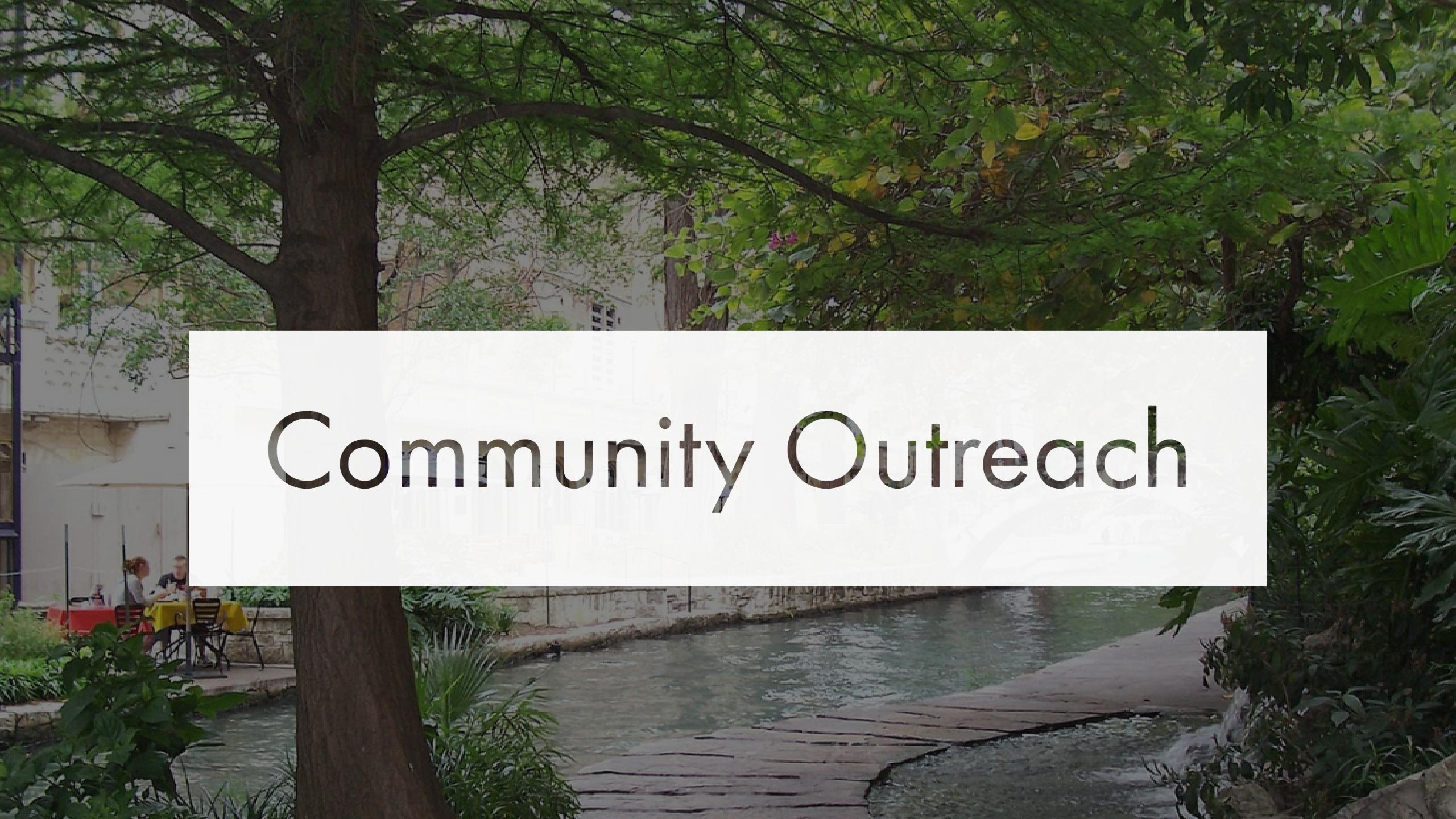
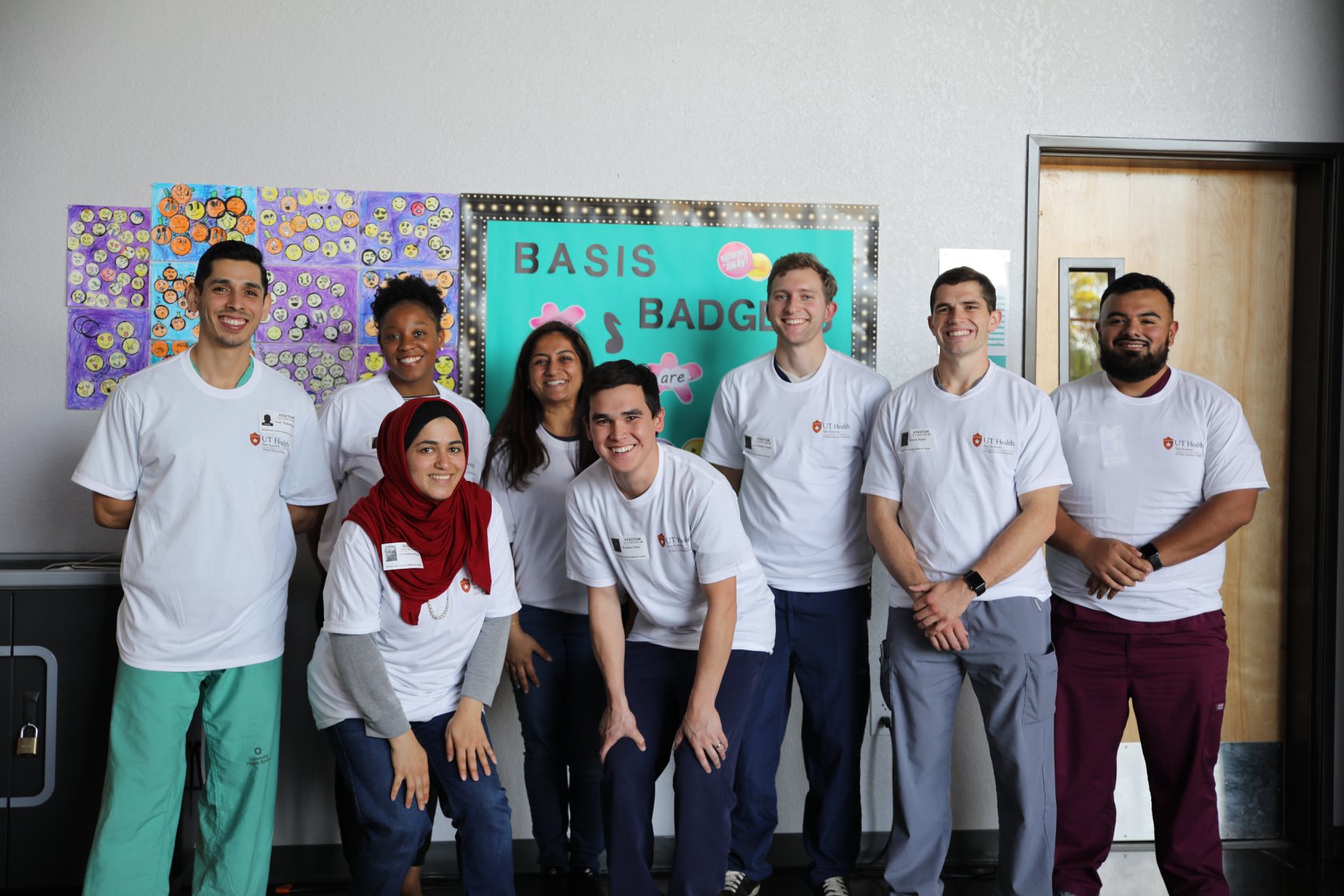
Left to Right: Ivan Rubalcava (Graduate School of Biomedical Sciences), Allison Hester (Graduate School of Biomedical Sciences), Manpreet Semwal (Graduate School of Biomedical Sciences), Christopher Adams (School of Dentistry), Luke Seiler (School of Dentistry), Juan Zuniga (School of Nursing) Second Row: Alia Mallah (Graduate School of Biomedical Sciences), Keaton Shin (School of Dentistry)
The STEM Scholars Program, a new interprofessional community outreach program at UT Health San Antonio provides a platform for dental, graduate, health professions, medical and nursing students to interact and collaboratively design and present health-related topics at local K-12 schools. The topics chosen for the pilot run are diabetes, cancer, and Alzheimer’s disease.
With the help of Dr. Ryan Hamilton and Bettina Clutts, teachers at Basis San Antonio Primary – Medical Campus, parents of elementary students from 4th and 5th grade classes received invites for the presentation as a voluntary afterschool program, from 4 p.m. to 5 p.m. With the program garnering great interest, the sessions were restricted to 50 students from the school.
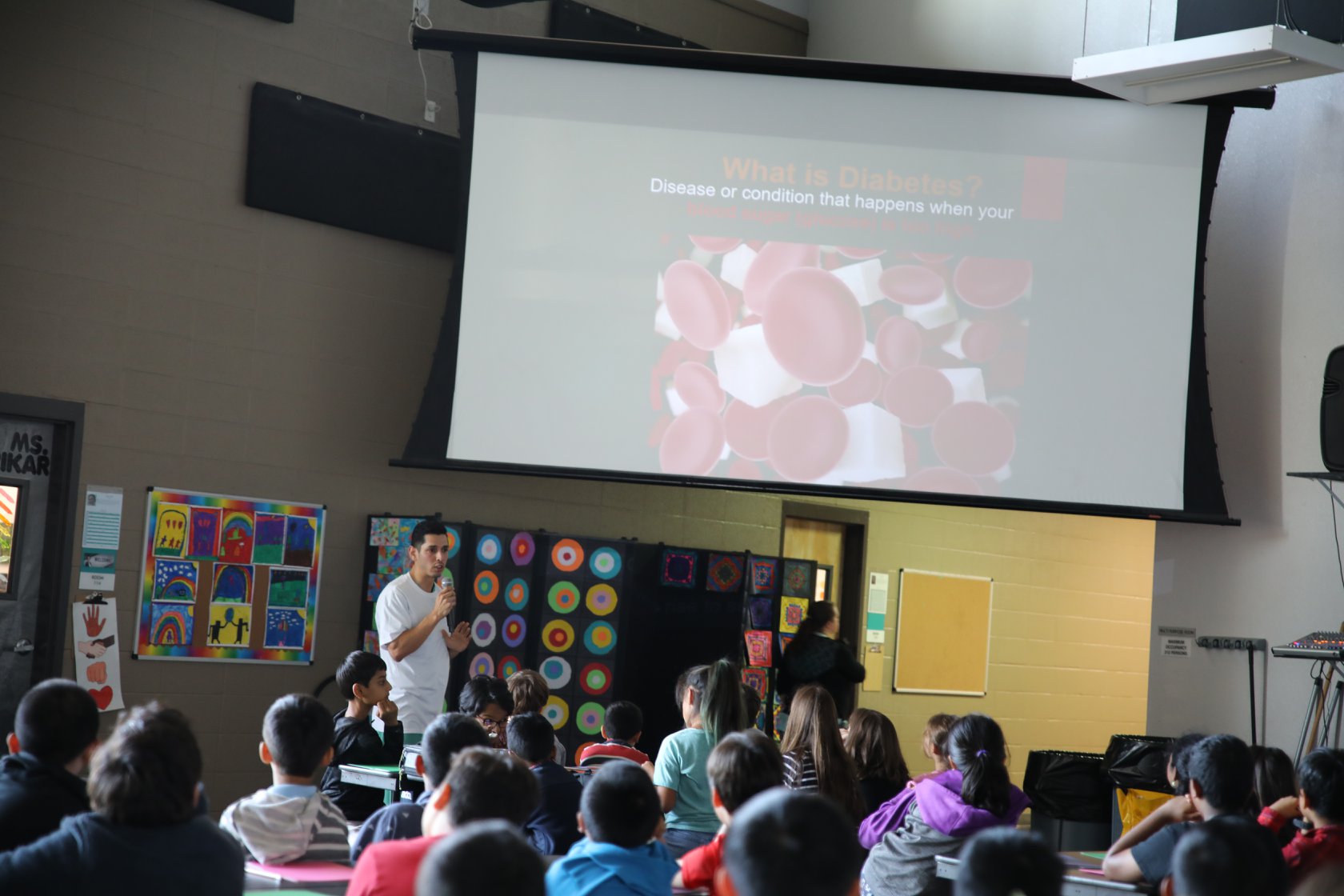
The first presentation was about diabetes, a disease related to high blood sugar. During the diabetes lesson, the students took a pre-quiz and then listened to a lecture created by the STEM Scholars team.
“29 million Americans have diabetes and 86 million Americans have prediabetes meaning people who are likely to get diabetes,” explained Ivan Rubalcava, a student in the Master of Science in Cell Systems and Anatomy program, Graduate School of Biomedical Sciences. “We all have sugar in our blood; however diabetics have a very high amount of sugar which affects your pancreas, eyes, kidney, nerves, teeth and gums.
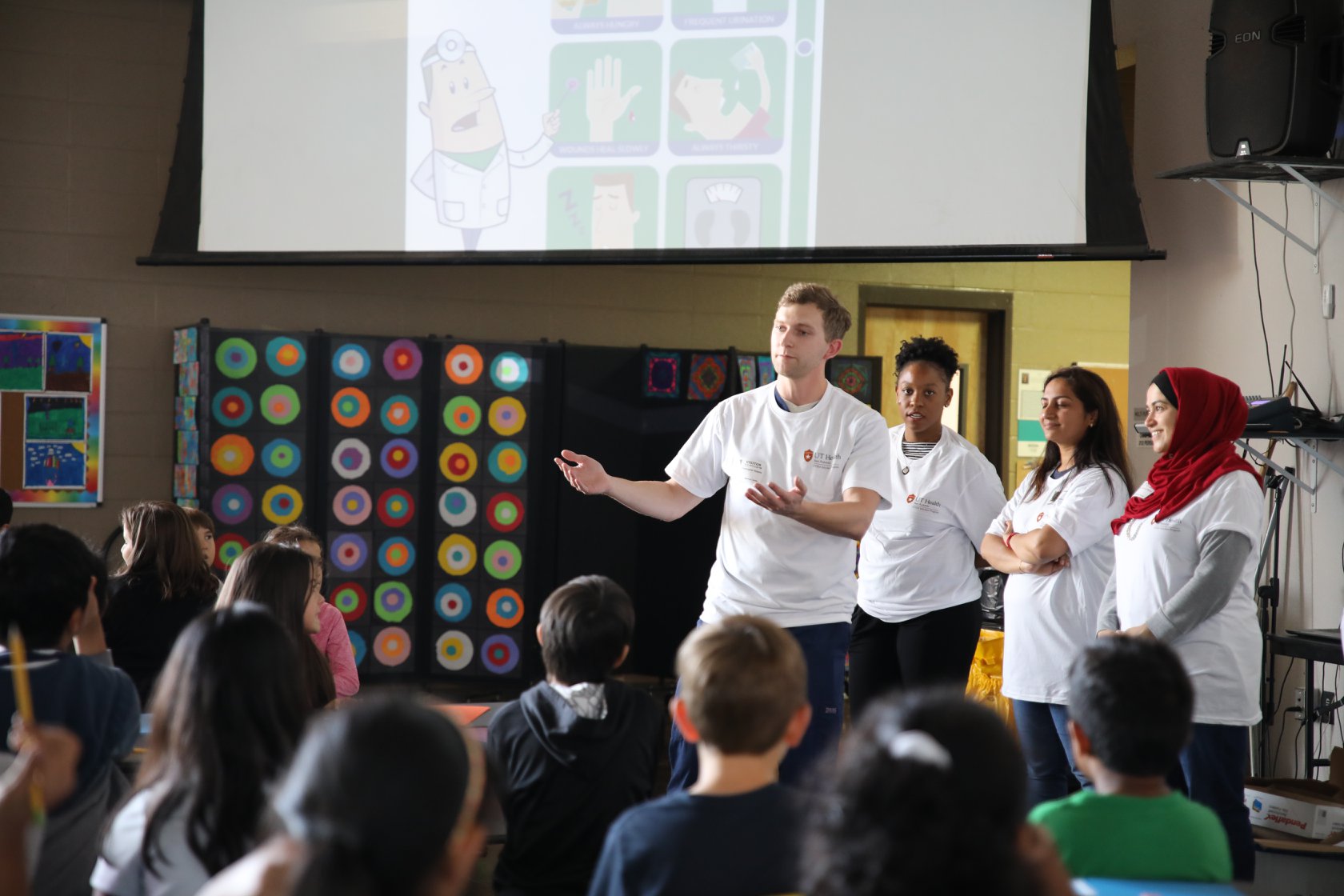
Christopher Adams, a student from the School of Dentistry, explained that there are many signs of diabetes including dry mouth, bad breath, bacterial infection, gum disease, tooth cavities and tooth loss.
“As a dentist, I think about teeth every day,” he said. “When you are an adult, the tooth fairy isn’t going to come anymore. So the bottom line is that you need to know about diabetes because you don’t want unhealthy teeth.”
Allison Hester and Manpreet Semwal, pre-doctoral students in the Integrated Biomedical Sciences program at the Graduate School of Biomedical Sciences, spoke about the discovery of insulin 99 years ago, and the use of insulin injections to help manage diabetes. They also spoke about recent advances in translational research occurring in research laboratories for treating diabetes including the transformation of skin cells to pancreas cells, replacement with healthy pancreas cells that make insulin, removing cells that hurt the pancreas and the use of BCG vaccine for treating diabetes. Some of these treatment methodologies are currently in clinical trials.
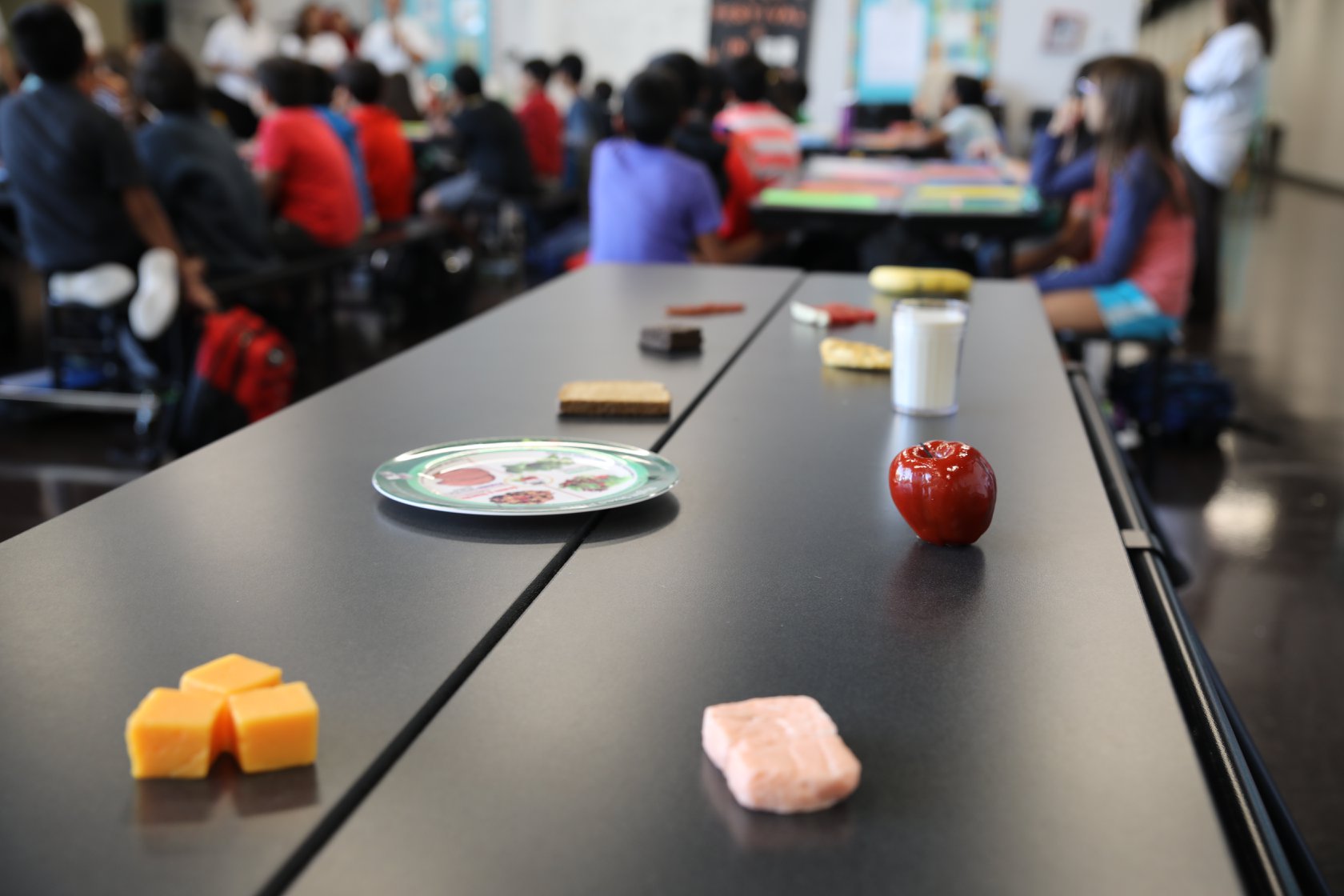
Juan Zuniga, a student from the School of Nursing, stressed the importance of eating a proper diet to help control diabetes and gave a few tips about portion control to the elementary students.
“Choose foods and beverages with less saturated fat, sodium, and added sugars,” he said. “Also, make sure half of your plate is filled with fruits and vegetables.”
After the presentation, the BASIS elementary students split up into teams to participate in interactive hands-on activities to bring home key details of the presentation. These engaging activities included a diabetic foot model, a sugar-in-foods station, and an insulin treatment activity, among others. Each activity was led by two STEM Scholars students from UT Health San Antonio. The elementary students participated in a pre-quiz before the presentations and a post-quiz after the activities to test whether the information was well-received. Unsurprisingly, the post-presentation surveys indicated that the students enjoyed the hands-on activities, where they could actively engage the concepts of diabetes prevention, treatment, and research within various STEM fields.
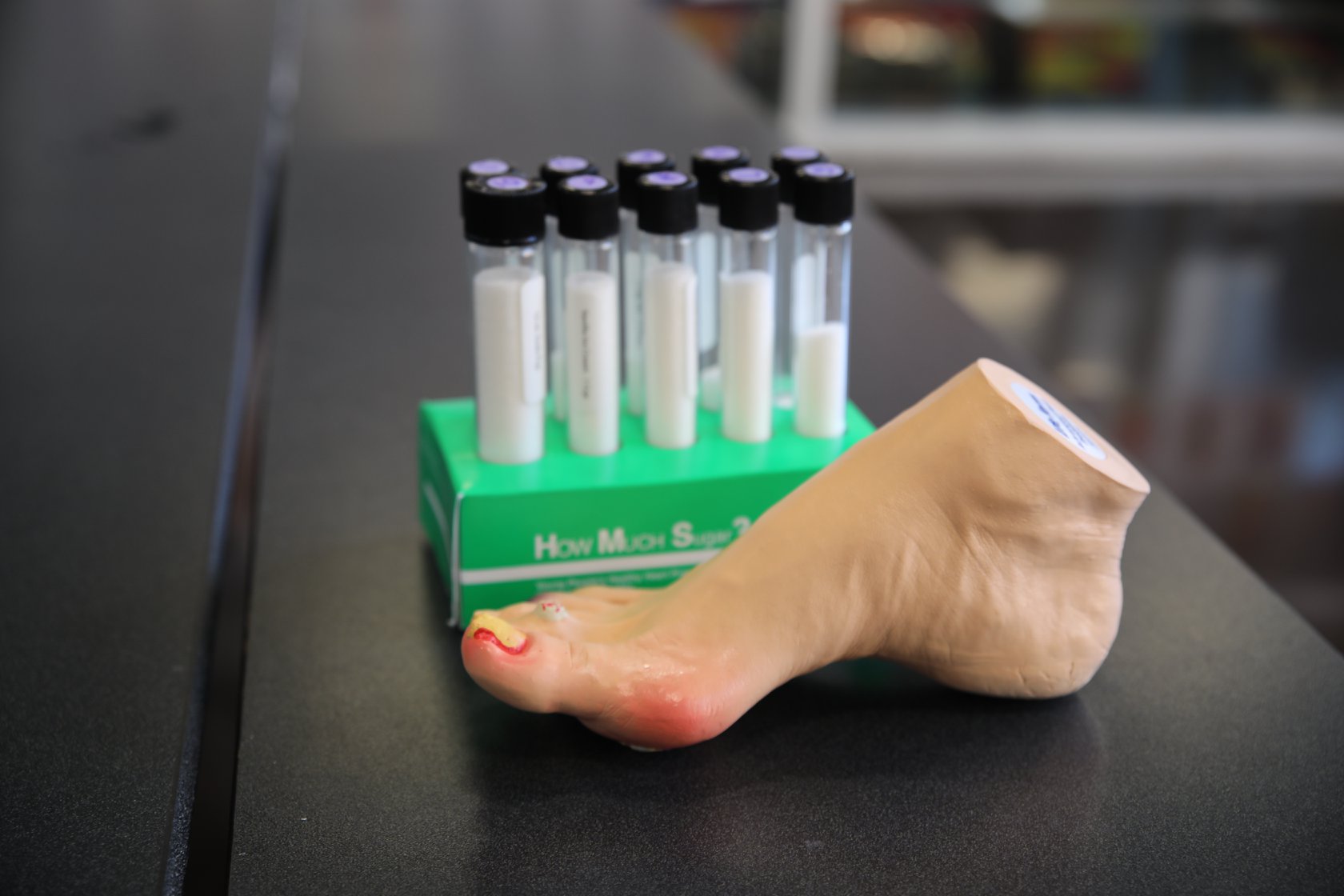
The STEM Scholars Diabetes team included Juan Zuniga (School of Nursing), Luke Seiler (School of Dentistry), Christopher Adams (School of Dentistry), Keaton Shin (School of Dentistry, Alia Mallah (Graduate School of Biomedical Sciences), Allison Hester (Graduate School of Biomedical Sciences), Ivan Rubalcava (Graduate School of Biomedical Sciences) and Manpreet Semwal (Graduate School of Biomedical Sciences).
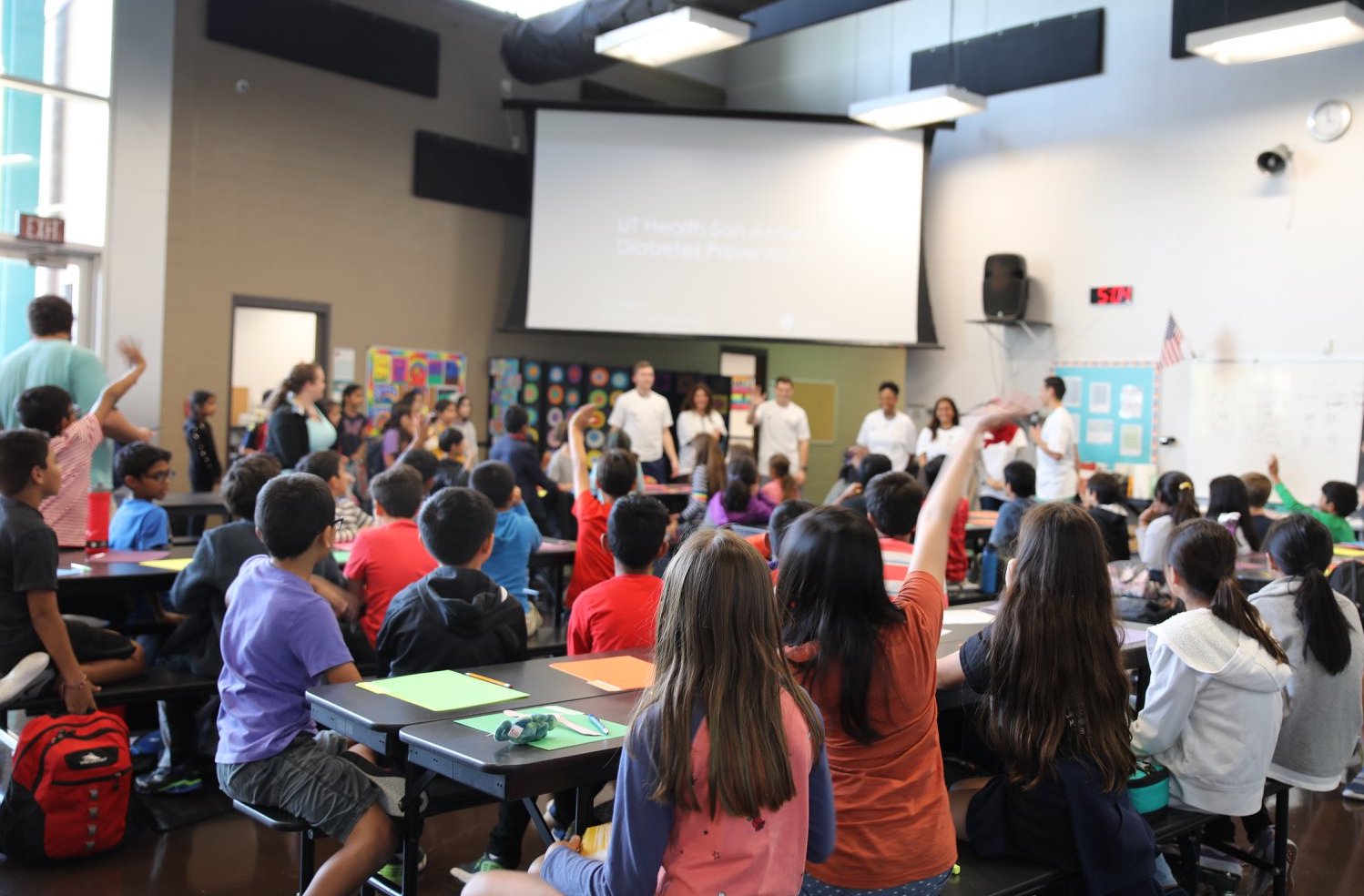
The STEM Scholars Program is funded by a grant from the Student Services Fee Committee to Charlotte Anthony, Marketing Specialist, Graduate School of Biomedical Sciences, Dr. Ramaswamy Sharma, Assistant Professor, Cell Systems and Anatomy, Long School of Medicine and Dr. Irene Chapa, Director, Recruitment & Science Outreach. The program thanks Olga Coronado and Tracy Castillo from the Office of Recruitment and Science Outreach and Dr. Moshtagh Farokhi, Leader of LINC Co-Curricular Initiative, Associate Professor/Clinical, School of Dentistry for their extensive help with organizing and coordinating the presentations and activities.
STEM Scholar Sessions:
Additional Photos:
The STEM Scholars Program, a new interprofessional program at UT Health San Antonio unites dental, medical, nursing,…
Posted by UT Health San Antonio Graduate School of Biomedical Sciences on Tuesday, October 29, 2019
